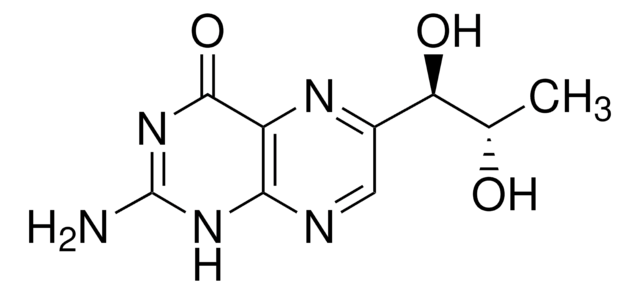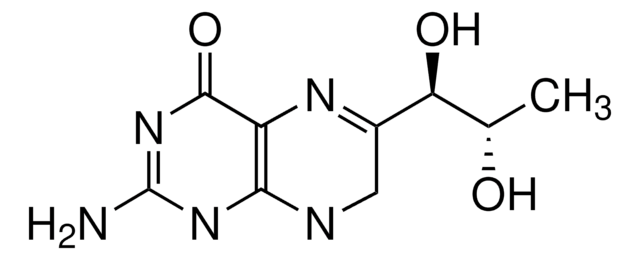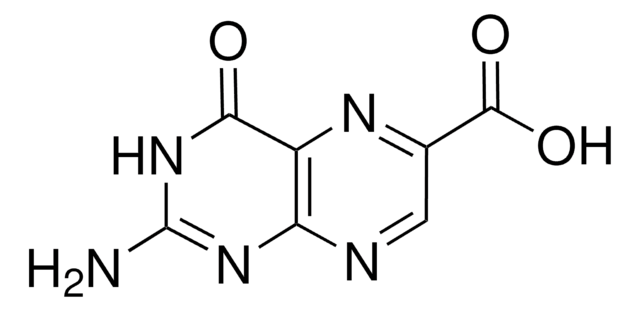T4425
(6R)-5,6,7,8-Tetrahydrobiopterin dihydrochloride
≥98% (HPLC), powder
Synonym(s):
(6R)-BH4
About This Item
Recommended Products
product name
(6R)-5,6,7,8-Tetrahydrobiopterin dihydrochloride,
Quality Level
solubility
water, oxygen free: soluble 19.60-20.40 mg/mL, clear to slightly hazy, colorless to faintly yellow
storage temp.
−20°C
SMILES string
Cl.Cl.C[C@H](O)[C@H](O)[C@H]1CNC2=C(N1)C(=O)NC(N)=N2
InChI
1S/C9H15N5O3.2ClH/c1-3(15)6(16)4-2-11-7-5(12-4)8(17)14-9(10)13-7;;/h3-4,6,12,15-16H,2H2,1H3,(H4,10,11,13,14,17);2*1H/t3-,4+,6-;;/m0../s1
InChI key
RKSUYBCOVNCALL-NTVURLEBSA-N
Gene Information
human ... PAH(5053)
General description
Application
Biochem/physiol Actions
Features and Benefits
Preparation Note
Certificates of Analysis (COA)
Search for Certificates of Analysis (COA) by entering the products Lot/Batch Number. Lot and Batch Numbers can be found on a product’s label following the words ‘Lot’ or ‘Batch’.
Already Own This Product?
Find documentation for the products that you have recently purchased in the Document Library.
Customers Also Viewed
Articles
Serotonin is stored in cells and metabolized by MAO, influencing CNS, GI, and platelet functions.
Serotonin is stored in cells and metabolized by MAO, influencing CNS, GI, and platelet functions.
Serotonin is stored in cells and metabolized by MAO, influencing CNS, GI, and platelet functions.
Serotonin is stored in cells and metabolized by MAO, influencing CNS, GI, and platelet functions.
Our team of scientists has experience in all areas of research including Life Science, Material Science, Chemical Synthesis, Chromatography, Analytical and many others.
Contact Technical Service













